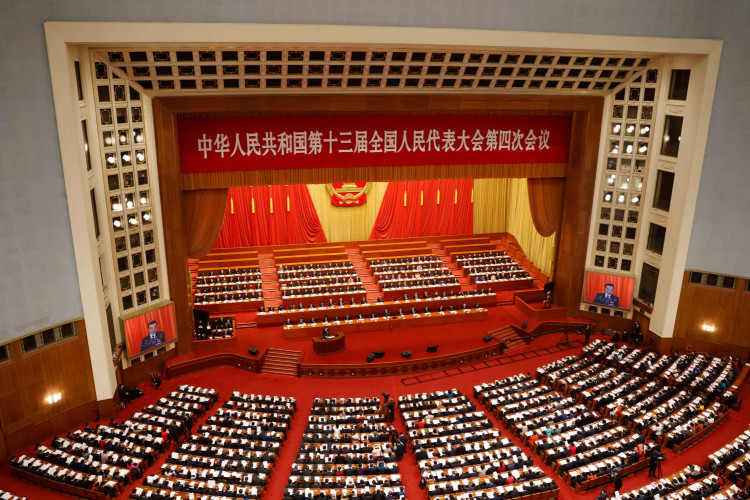China will be introducing a series of electoral reforms in Hong Kong, mainland authorities announced at a meeting of the National People's Congress (NPC) Friday.
A draft of electoral reforms for the city was introduced for deliberation and will likely precede greater changes in Hong Kong's business and legal spheres as China tightens its hold.
The city's legislature is expected to grow from 70 to 90 seats, according to local media reports, while the number of directly elected seats will decrease.
"Make no mistake: Hong Kong is under one-party rule," exiled Hong Kong activist Jeffrey Ngo told Business Times from the U.S.
Legislative elections will probably be canceled for a second consecutive year and the city will have a "new democratic electoral system [...] with Hong Kong characteristics" according to Chinese state media outlet Xinhua News Agency.
Beijing will create a Hong Kong chief executive election committee with the power to "nominate all candidates for Legislative Council members and directly elect some members to the legislature," NPC vice chairman Wang Chen said Friday.
The methods and size of the committee are not yet certain and will be improved over time, he added.
"It is important to take necessary steps to improve the electoral system and remove existing institutional deficiencies and risks," said Wang. Hong Kong's mini-constitution, the Basic Law, will not be changed but some local laws will be amended, though he did not say which.
Hong Kong was guaranteed a level of autonomy in the 1984 Sino-British Joint Declaration that prevents China from influencing policy in the city until 2047. But in the eyes of many residents, 2047 has already arrived.
"With every potential candidate now arrested and jailed, they are going further to destroy an already flawed legislature by packing the chamber with only loyalists," said Ngo.
After topping the Index of Economic Freedom for 25 straight years, Hong Kong was removed this year after index organizers noted that the city had lost most of its autonomy to the mainland.
Hong Kong's economy is "ultimately controlled from Beijing," Heritage Foundation said in a statement.
The city's ranking on the list had been proudly touted by both Hong Kong and mainland officials as evidence of their government's openness, a status put further in doubt by the latest proposed reforms.
District councils, the only fully democratic institution in Hong Kong, are likely next up on the chopping board.
While they oversee relatively banal neighborhood issues for the most part, pro-democracy advocates were elected to nearly 90% of council seats in 2019 - the opposition's only remaining bastion since the LegCo disqualifications.





